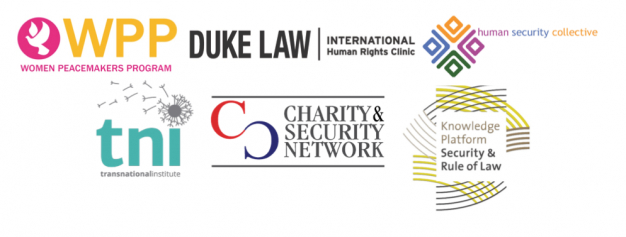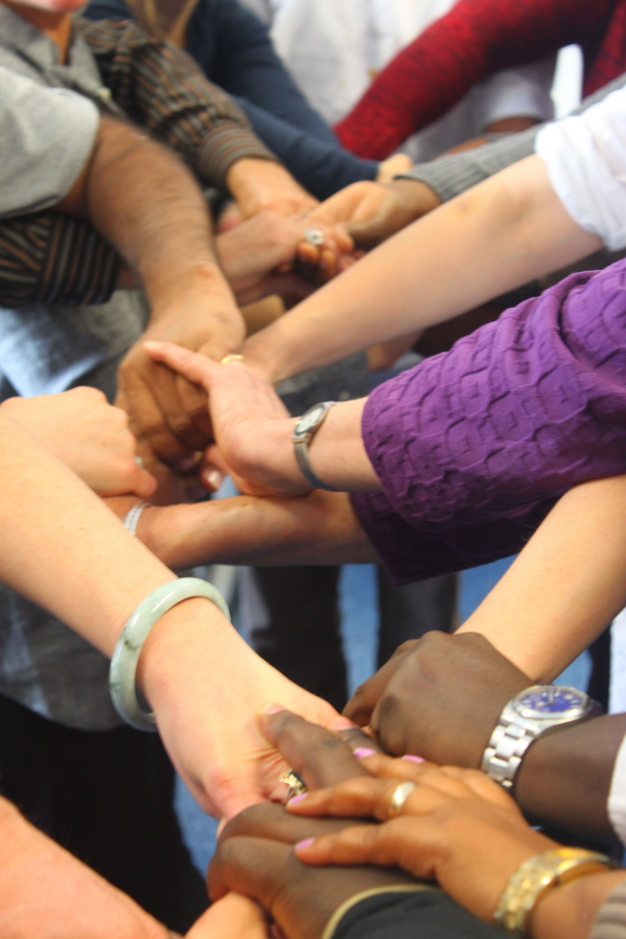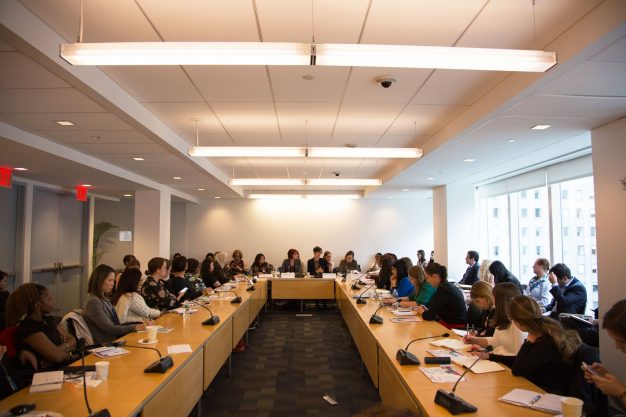Although the United Nations requires signatories to have ECOSOC status, we intend to use the statement for advocacy purposes at the CSW and welcome all endorsements.
If you would like to endorse the statement, please send cwgl@rci.rutgers.edu the full name of your organization (as it appears in the ECOSOC database for those with accreditation), no later than 12pm EST Wednesday, October 22, 2014.
Equality, Development and Peace: 2015 and Beyond
The Center for Women’s Global Leadership (CWGL) at Rutgers University and the undersigned organizations welcome the 59th session of the Commission on the Status of Women to review and appraise the implementation of the Beijing Declaration and Platform for Action along with the opportunity to contribute to the integration of gender perspectives in the post 2015 development agenda.
2015 is a critical year for the United Nations, member states and all the peoples of the world. We believe in the indivisibility of human rights—economic, social, cultural, civil and political rights—and their critical relevance for 2015 and beyond for individuals and groups as part of an interconnected humanity.
The world has changed dramatically since the Beijing conference in 1995. In this changing global context, women have often been disproportionately negatively impacted because of the many roles that they play and their intersectional identities that target them for multiple forms of oppression, exploitation and discrimination.
- Macroeconomic Policy: The growing dominance of finance in the economy and in people’s lives in countries large and small coupled with the growing economic interconnectedness of nations has meant that economic policies have powerful impacts within and across borders. Economic inequalities within and between countries has grown. The global financial crisis of 2008 often meant bailouts for private banks paid for by low and middle income households. The ever expanding role of private sector actors in the business of development both alone and in concert with governments has shifted power relationships. These developments have in many cases exacerbated and widened inequalities between and within nations and peoples, endangering efforts to realize human rights.
- Women’s Work: In parts of the world, women’s paid employment has increased, particularly on the global assembly line, but their increased participation in the labor force has not translated into decent work—equitable pay, safe working conditions and adequate benefits. Migrant women continue to face multiple forms of discrimination as they seek work opportunities outside their home countries. The unequal distribution of unpaid care work continues to negatively affect women’s enjoyment of rights to health, leisure and participation as well as their right to work. The global climate crisis has reduced women’s efforts in many countries to build sustainable livelihoods and in some cases threatened the very existence of their communities.
- Gender Based Violence and Militarism: Despite the efforts of women around the world, gender-based violence perpetrated by State actors, exacerbated by the proliferation of the use of small arms in cases of intimate partner violence and sexual violence during and after conflict continues to be a daily reality for many women. The proliferation of small arms and nuclear weapons as a means of power continues to pose a threat to a peaceful and sustainable future, and will continue to contribute to conflict violence and gender-based violence globally. These realities are testimony to the ongoing and expanded need for a bold global partnership committed to the realization of human rights for all.
We call upon all member states to use a human rights framework to shape a new global understanding of development partnerships and a clear commitment to a global, enabling macroeconomic environment.1. Address macroeconomic policies that foster equality within and between States:
- Recognizing the role played by financial globalization and affirming the critical importance of recognition of social and economic rights as addressed in the International Convention on Economic, Social and Cultural Rights;
- Developing global consensus on human rights accountability for all actors: international financial institutions, multinational corporations, credit rating agencies, national governments, and trade agreements—multilateral, bilateral and regional, and civil society;
- Utilizing international human rights treaty process to monitor accountability through transparency and rulemaking, including a system of peer-to-peer monitoring of all countries using the Universal Periodic Review and similar human rights mechanisms for monitoring, evaluation and comparison in order to measure improvements in human rights obligations;
- Recognizing the necessity of a strong regulatory environment and appropriate macroeconomic management to mobilize local resources for the realization of rights; and
- Promoting universal acceptance and implementation by all development actors— public and private—of extra territorial economic and social rights obligations as envisioned in the Maastricht Principles for Extraterritorial Obligations.
2. Support policies and programs that foster poverty alleviation and women’s right to work and sustainable livelihoods, based on substantive equality and recognizing both women’s public and private lives:
- Promoting and protecting the human rights of women through the full implementation of all human rights instruments, especially the Convention on the Elimination of All Forms of Discrimination against Women, eliminating discrimination
- based on race, disability, migrant or indigenous status, age, sexual orientation, gender identity, etc.;
- Fostering policies that protect the rights of women to decent work, including equitable pay and benefits, safe working conditions, and the right to organize;
- Expanding assessment of the realization of women’s sexual and reproductive rights and how it is linked to their rights at work;
- Fostering policies to support and legally guarantee women’s rights to control over land, property and productive resources; and
- Recognizing the value of unpaid care work and redistribution of paid and unpaid care work, which should be achieved within the household and between the household and the public sphere, through public provision of care services, government incentives, labor laws and regulations, and equality legislation, etc.
3. Promote policies that address detrimental effects of militarism and militarization on social and environmental sustainability:
- Recognizing gender-based violence perpetrated by State actors, as well as non-State actors, to achieve political, economic, and social control over individuals and communities;
- Developing systems of accountability and regulation for transnational corporations, including in extractive industries, and private military companies;
- Developing global protocols to regulate and curb the sale of the global small arms market and implementing strategies for the prevention, protection, justice and service to survivors;
- Supporting and protecting the human rights of Women Human Rights Defenders who are routinely silenced, threatened, and killed for calling for human rights values to be respected; and
- Insisting upon women’s participation in peace negotiations and other transitional processes.
We call on the Commission on the Status of Women to facilitate leadership to supports States and other development actors in the development of a global partnership that honors human right obligations and works for their realization in all countries—implementing all existing commitments to women’ equality and empowerment and respecting international human rights and agreements.
 In preparation for the upcoming Commission on the Status of Women (CSW) in March 2015, the Center for Womens Global Leadership (CWGL) has drafted the attached statement to encourage UN Member States to fulfill their human rights obligations toward the full realization of womens rights. We would like to submit this joint statement with your support.
In preparation for the upcoming Commission on the Status of Women (CSW) in March 2015, the Center for Womens Global Leadership (CWGL) has drafted the attached statement to encourage UN Member States to fulfill their human rights obligations toward the full realization of womens rights. We would like to submit this joint statement with your support.

